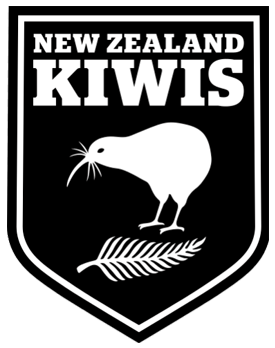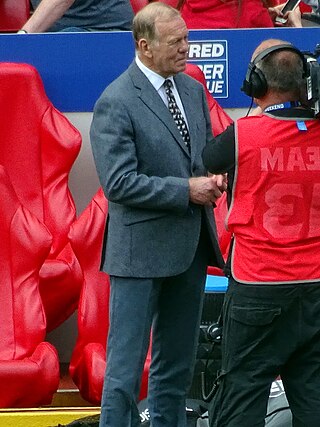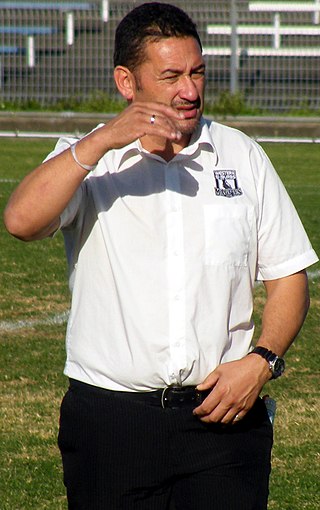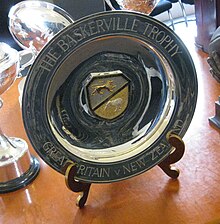
The history of rugby league as a separate form of rugby football goes back to 1895 in Huddersfield, West Riding of Yorkshire when the Northern Rugby Football Union broke away from England's established Rugby Football Union to administer its own separate competition. Similar schisms occurred later in Australia and New Zealand in 1907. Gradually the rugby played in these breakaway competitions evolved into a distinctly separate sport that took its name from the professional leagues that administered it. Rugby league in England went on to set attendance and player payment records and rugby league in Australia became the most watched sport on television. The game also developed a significant place in the culture of France, New Zealand and several other Pacific Island nations, such as Papua New Guinea, where it has become the national sport.

The Rugby Football League (RFL) is the governing body for rugby league in England. Founded in 1895 as the Northern Rugby Football Union following 22 clubs resigning from the Rugby Football Union, it changed its name in 1922 to the Rugby Football League.

The Great Britain national rugby league team represents Great Britain in rugby league. Administered by the Rugby Football League (RFL), the team is nicknamed The Lions.
The Australian national rugby league team, the Kangaroos, have represented Australia in senior men's rugby league football competitions since the establishment of the game in Australia in 1908. Administered by the Australian Rugby League Commission, the Kangaroos are ranked first in the IRL Men's World Rankings. The team is the most successful in Rugby League World Cup history, having won the competition 12 times, and contested 15 of the 16 finals, only failing to reach the final in the 1954 inaugural tournament. Only five nations have beaten Australia in test matches, and Australia has an overall win percentage of 69%.

The New Zealand national rugby league team has represented New Zealand in rugby league since 1907. Administered by the New Zealand Rugby League, they are commonly known as the Kiwis, after the native bird of that name. The team's colours are black and white, with the dominant colour being black, and the players perform a haka before every match they play as a challenge to their opponents. The New Zealand Kiwis are currently second in the IRL World Rankings. Since the 1980s, most New Zealand representatives have been based overseas, in the professional National Rugby League and Super League competitions. Before that, players were selected entirely from clubs in domestic New Zealand leagues.

The France national rugby league team represents France in international rugby league matches. They are referred to as les Chanticleers or less commonly as les Tricolores. The team is run under the auspices of the Fédération Française de Rugby à XIII.

The England national rugby league team represents England in international rugby league.

Albert (Bert) Henry Baskerville was a Wellington, New Zealand, postal clerk, a rugby union forward, author of the book Modern Rugby Football: New Zealand Methods; Points for the Beginner, the Player, the Spectator and a pioneer of rugby league.

Malcolm John Reilly OBE is an English former rugby league player and coach. He played in the 1960s, 1970s and 1980s, and coached in the 1970s, 1980s, 1990s and 2000s. He played at representative level for Great Britain, England and Yorkshire, and at club level for Castleford in England, and Manly-Warringah Sea Eagles in Australia, as a loose forward,

James William Mark Roby is an English former professional rugby league footballer who last played as a hooker for St Helens, who he also captained, in the Super League. He represented Great Britain and England at international level.

Jason Paul Williams is a New Zealand former professional rugby league footballer who played in the 1980s and 1990s. A New Zealand international representative winger, he played his club football in Australia for Sydney's Western Suburbs Magpies, Eastern Suburbs Roosters, South Sydney Rabbitohs, Canterbury-Bankstown Bulldogs and the Penrith Panthers as well as in England for Salford. Williams played 145 games in the Australian competition from 1987–88 and 1991–98, scoring a total of 63 tries and winning the 1995 ARL Premiership with the Canterbury club. Williams played in 12 test matches for New Zealand between 1991 and 1995, scoring one try. He played in one non-test international on the 1993 Kiwis tour against Wales and two World Cup matches.

The 1907–1908 New Zealand rugby tour of Australia and Great Britain was made by a group of New Zealand rugby footballers who played matches in Australia, Ceylon, England and Wales between 1907 and 1908. Most of the matches were played under the rules of the Northern Union, a sport that is today known as rugby league. As such, the team were the immediate predecessors of the New Zealand national rugby league team. The tour had a large role in establishing rugby league in both Australia and New Zealand, and also gave birth to international rugby league. The tour party has come to be known as the professional All Blacks or All Golds, although at the time they were commonly referred to as the All Blacks—a named popularised by the New Zealand rugby union team that toured the Northern Hemisphere in 1905.
Adam "Addie" Lile (1885-1954) was a New Zealand rugby footballer who was part of the professional 1907-1908 New Zealand rugby tour of Great Britain.
Top-level rugby league in 2010 centered on Australasia's 2010 NRL season and Super League XV. High-profile representative competitions included the 2010 Four Nations, the 2010 State of Origin series and the 2010 European Cup.

Christopher Andrew Hill is an English professional rugby league footballer who plays as a prop for the Huddersfield Giants in the Super League, and England and Great Britain at international level.
The 2002 New Zealand rugby league tour of Great Britain and France was a tour by the New Zealand national rugby league team. The New Zealand national rugby league team drew the series 1.5-1.5 against Great Britain and also defeated Wales and France.
The Super League Test series was a rugby three-test match series between the Great Britain Lions and Super League's Australian national team held during November 1997 in England. Named the British Gas Test series due to sponsorship from Centrica's British Gas brand, it went to a decider in the third test that was won by Australia.

Rugby union has a long history in New Zealand. Today, New Zealand holds tier one status with World Rugby.
The 2015 New Zealand rugby league tour of England was a tour by the New Zealand national rugby league team. The New Zealand national rugby league team played a match against the Leeds Rhinos and competed in a three match test series against England for the Baskerville Shield, losing 2-1.
The 2018 New Zealand rugby league tour of England was a tour by the New Zealand national rugby league team. The tour saw New Zealand play a three match series against and England for the Baskerville Shield. The hosts, England, won the series by two matches to one.
















